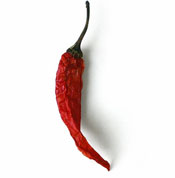Writing a Writing Resume
|
|
 | |
| A little bit can go a long way if you choose your words carefully in a writing resume. |
First of all, when trying to get hired in the writing industry, you need to be sure that the main focus of the resume is the skills and experiences you’ve had within the field. This should be easy in the writing industry, because even if you are an entry level applicant, there’s always something you have written in the past. If you've been writing a novel, for example, you might want to mention it without getting into too much detail about it. The point of the resume should be to show the employer who you are and why you’d be perfect for the job.
If you’ve had any jobs where you were a writer or held a position related to that field, be sure to highlight these under ''professional experiences'' in your resume. Describe in detail what your responsibilities consisted of so your potential employer can get a good picture of the sort of experience and training you’ve been exposed to. If you’ve had to work under a tight deadline or produce work in a high-stress environment, be sure to highlight those experiences.
Next, you want to focus a little bit on the education that you’ve had. A degree in journalism or another writing related field is excellent to have and to include in your resume. If you are a recent graduate and possess a degree of this nature, you will want to emphasize it above your professional experience as it will be your strongest suit. Do whatever it takes to show off your strengths and to make it easier for your employer to see quickly where you come from and who you are.
For a writing resume, it will most likely be unnecessary to go over one page. The only exception to this rule would be if you have an extensive and impressive work history. Otherwise, one page should be sufficient to include everything you need that is relevant and for your potential employer to get a good idea of what you have to offer the company.
If you are shifting careers, there are some important things to keep in mind as you are applying. The most important thing to know is the value of transferable skills. Even if you’ve never been employed specifically as a writer before, if your job responsibilities included related skills like writing up reports or working under a deadline, including those experiences in your writing resume will work for your benefit.
Clips are going to be important in a writing resume, but they should be done in a portfolio style for the interview. Do not go into detail describing these in your resume. It takes up too much room and is redundant. It is okay, however, to mention in the resume anywhere prestigious where you’ve been published, and if there are clips online, you can give the URL so they can find additional writing samples if they so desire. Make sure the hard copies of the writing samples you do provide are well organized in a portfolio and as professional as possible in presentation.
Sometimes, a potential employer will want to see that you’ve gone out of your way to broaden your view of the world. Therefore, if you have any outstanding travel or volunteer experiences or other experiences of note, it may be wise to provide a brief description of these in your resume. This is because a wider view of the world and character-building experiences are the mark of an exciting writer with a fine-tuned perspective. This is also what may help you stand out among the other applicants, although the writing samples you provide should set you apart as well.
Last but not least, it is important to make sure your resume is not only well-written with carefully chosen words, but is absolutely free of spelling and grammatical errors. This is true with a resume in any industry, but may stand out even more when applying for a writing position as the resume reviewer is probably more accustomed to picking out those errors. It is also important because your resume will reflect who you are as a writer, and careless errors will only take away from your credibility.
Thus, producing a well-written resume with relevant skills and experiences highlighted will be your key to landing an exciting writing job. Take the time to decide which of your experiences contain the skills that your potential employer is most likely looking for and be descriptive about your capabilities without becoming too wordy. If your potential employer can glean all of this information from a concise, single page, you’re well along your way to achieving the writing position you’ve worked hard for.




